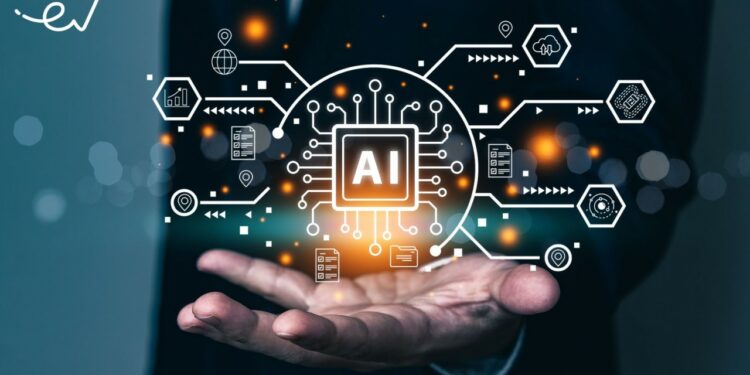As a seasoned higher education administrator, I have witnessed firsthand the transformative power of technological advancements on the academic landscape. However, the rapid emergence of artificial intelligence (AI) and its far-reaching implications demand our undivided attention and strategic action. The findings from the provided sources paint a compelling picture of the AI disruption that is already reshaping industries and redefining the skills required for success in the workforce of tomorrow.
The World Economic Forum’s report highlights AI’s staggering impact on various occupational groups, with IT, finance, customer service, and operations jobs facing the highest percentage of task automation or significant alteration. This trend is further corroborated by the projections of a 22% job churn in the Indian job market by 2027, as outlined in the Emeritus study. While these figures may seem daunting, they also underscore the urgency for proactive measures to equip our students with the skills necessary to thrive in this AI-driven era.
As educators, we must acknowledge the paradigm shift AI is ushering in and embrace it as an opportunity to redefine the learning experience. Integrating AI into administrative processes, teaching methodologies, and research endeavours is no longer a distant possibility but an imminent reality. Rather than viewing AI as a threat, we should perceive it as a powerful tool to augment human capabilities and drive innovation.
To navigate this AI revolution successfully, Indian higher education institutions must prioritize the following strategies:
Curriculum Revamp: We must critically evaluate our curricula to incorporate AI literacy and ethical AI practices and develop complementary skills to enable our students to collaborate effectively with AI systems. Disciplines such as data science, machine learning, cybersecurity, and full-stack development should be given due prominence, as they are projected to be among the top in-demand jobs in 2024.
Interdisciplinary Collaboration: The complexities of AI demand a transdisciplinary approach, fostering collaboration between faculty from diverse disciplines, including mathematics, computer science, ethics, business management, and the humanities. By breaking down silos, we can nurture a holistic understanding of AI’s implications and equip our students with a well-rounded skillset.
Continuous Professional Development: Upskilling and reskilling initiatives should not be limited to students alone. We must invest in continuous professional development programs for faculty and staff, empowering them to integrate AI effectively into their teaching and administrative practices[9. Collaborating with industry experts and leveraging online learning platforms can facilitate this process.
Industry Partnerships: Forging strategic partnerships with leading AI companies and research institutions can provide invaluable opportunities for our students to gain hands-on experience, internships, and exposure to cutting-edge AI applications. Such collaborations can also inform our curriculum development and ensure our programs remain relevant and aligned with industry needs.
Ethical AI Practices: As AI systems become more sophisticated, we must instill in our students a deep understanding of the moral implications, potential biases, and responsible use of these technologies. By fostering critical thinking and ethical decision-making skills, we can empower our graduates to navigate the AI landscape with integrity and social responsibility.
To aspiring students in India, I offer this advice: Embrace the AI revolution with open arms, for it presents unprecedented opportunities for personal and professional growth. Cultivate a growth mindset and a willingness to learn continuously, as the half-life of skills is rapidly diminishing[18]. Develop proficiency in programming languages, data analysis, and AI-related disciplines, and hone your soft skills, such as critical thinking, creativity, and emotional intelligence, as these will be invaluable in an AI-augmented workforce.
The road ahead may be challenging, but by proactively adapting and upskilling, you can position yourselves at the forefront of this technological transformation. Seek out institutions that prioritize AI education and offer opportunities for hands-on experience. Engage in interdisciplinary projects, collaborate with industry partners, and stay abreast of the latest developments in the field.
In conclusion, the AI revolution is upon us, and Indian higher education institutions are pivotal in shaping the future workforce. By embracing AI as a catalyst for innovation and prioritizing upskilling initiatives, we can empower our students to navigate this disruption confidently and competently. Together, we can harness the power of AI to unlock new frontiers of knowledge, drive economic growth, and create a more equitable and sustainable future for all.


















Discussion about this post